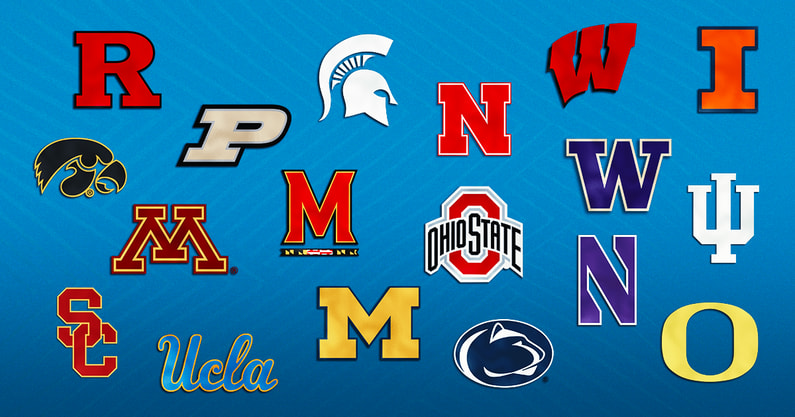According to a survey conducted by U.S. News, out of the 1,076 ranked colleges that participated, 22 percent of undergraduates received a merit scholarship in the 2019-2020 school year. Merit scholarships are awarded to students with a special skill or talent. With the high price tag on colleges, seeking a scholarship that supports your interests and financial needs should be heavily considered. Regardless of financial need, scholarships can help support a wide range of dedicated students with varying abilities. There are thousands of scholarships offered and many databases that can help you access scholarships that are right for you. Preminente counselors can also assist in accessing and identifying scholarships that best suit your needs and talents.
There are many different types of scholarships: academic, community service, athletic, hobbies or extracurriculars, identity-based, need-based, and employer/military-based. There are also scholarships that fit unique skills and interests. As they say, there is something for everyone, so it is worth taking a deeper look into the world of scholarships before seeking financial aid or student loans.
Academic Scholarships & Merit Scholarships
Students who excel academically are eligible for thousands of scholarships. Transcripts and test scores can serve as evidence of your academic successes, making you a desirable candidate for academic scholarships. To receive academic scholarships, you must have excellent grades and rank in the top percentile of your graduating class. There are many organizations in place that aim to support the nation’s most academically deserving students.
For example, the National Merit Scholarship Corporation strives to “shine a spotlight on brilliant students and encourage the pursuit of academic excellence at all levels of education.” Each year approximately 1.5 million students enter the National Merit Scholarship Program, an academic competition for recognition and scholarships. The National Merit Scholarship Program uses students’ PSAT/National Merit Scholarship qualifying test scores as an entry to the competition. While this scholarship is highly competitive, for the 2021/2022 school year, the National Merit Scholarship Program gave out 40 million dollars through 8,700 awards. For more information on qualifications and entry requirements, you may access their website.
All academic scholarships are considered merit scholarships, but not all merit scholarships are academic. Merit scholarships can be connected to academics, but can also focus on athletics, art, or community service pursuits as well. You should consider all interests as potential paths to merit scholarships. Each scholarship has its own requirements that can vary between grades, extracurriculars, or leadership roles.
Almost all colleges offer merit aid scholarships; however, most Ivy League colleges do not. Ivy League schools are known to generously assist students in financial need but will not provide merit scholarships to their already academically-focused population of students.
Merit scholarships vary in financial generosity. Some scholarships provide a small amount, while others provide a fully paid tuition. Some scholarships are recurring annually, while some are one-time sums. If you receive an annual scholarship, there are likely eligibility requirements to continue receiving funding, such as maintaining a certain GPA.
Each college provides a different level of support for their students; the amount you receive generally varies by the college. It can depend on whether the college is private or public. It can even depend on whether you are an in-state or an out-of-state student. In a survey conducted by U.S. News, out of the 340 ranked public institutions that participated, colleges reported that out-of-state students received an average of $8,786 in merit aid. Meanwhile, their in-state students reported receiving about half that amount at $4,881 in merit aid. Although out-of-state students are likely to receive more merit aid, in-state students have the same chance of receiving merit scholarships as out-of-state students. Merit scholarships are used to draw competition among students, but also among the colleges themselves.
Accessing Scholarships
Scholarships can be accessed through many different channels. There are online databases that help narrow your search and locate the ones that pertain to your specific interests or skills. Preminente counselors can also help you access scholarships that are specific to the colleges and programs you apply to.
Oftentimes, you can find scholarships throughout your community. Local shops, clubs, or organizations usually offer scholarships to high school students who meet a specific criterion. They can be skill specific or in remembrance of someone who passed away. Be sure to ask your school’s guidance counselor for a list of local scholarships.
Applying for Scholarships
Students can be awarded scholarships for a variety of reasons: academic-based, extracurricular-based, or need-based. Whatever the case, most scholarships have certain requirements that come along with it. There are, however, some scholarships that have no requirements, like sweepstakes, where you’re only required to enter a name and contact information. These scholarships are highly competitive due to the large number of applicants and the little amount of time it takes to apply. Winning a scholarship like this is purely based on luck.
When applying to merit-based scholarships, the application process can be time-consuming and require a great deal of effort. While some academic scholarships only require submission of GPA, transcripts, or test scores, others require an essay or a response to a prompt. Most scholarships do require some sort of narrative as part of the application.
Extracurricular scholarships usually require a narrative and letter of recommendation as proof of participation in the club, group, activity, or organization that you are a part of. Sometimes there are academic requirements as well. Depending on the extracurricular, the applicant pool can vary in size, making it more or less competitive to win.
Financial or need-based scholarships typically require proof of you or your family’s finances/income. Financial scholarships help bridge the gap between what you can pay and what financial aid you’ve already received. Scholarships do not need to be paid back, so they are a logical economic alternative to student loans.
Let Preminente Help You
Seeking out and applying for scholarships can be a daunting task. Preminente counselors have years of professional experience guiding students to scholarships that match their academic and personal identity. Preminente can help you find a scholarship that fits you and helps complete the complex application process.


